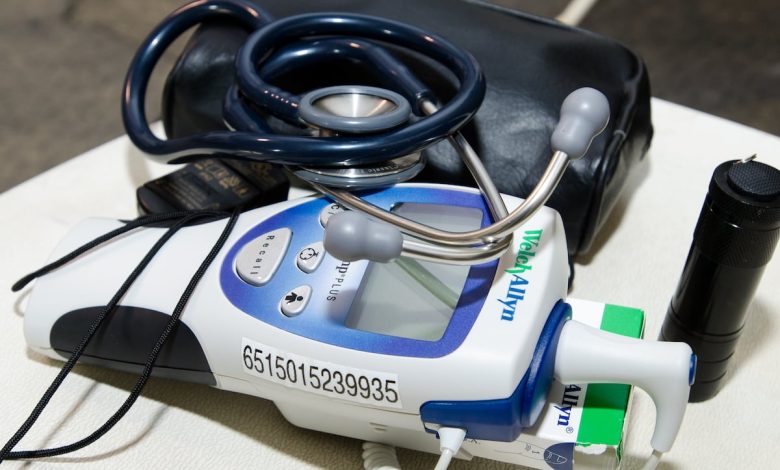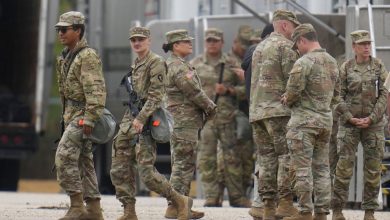New Tricare Prime option coming to beneficiaries in 2 metro areas

Roughly 150,000 Tricare beneficiaries living in the Atlanta, Georgia, and Tampa, Florida, metro areas will have a new health care option next year through a demonstration project being conducted by the Defense Health Agency.
Eligible beneficiaries in these areas will be able to enroll in a Tricare Prime option, in which they will receive care from CareSource Military and Veterans Co.’s network of primary and specialty care providers.
CareSource Military and Veterans Co., of Dayton, Ohio, was awarded contracts in November 2024 to run three-year demonstration projects for the two areas, worth a combined total of $110 million.
Eligible individuals include active-duty family members; family members of activated National Guard or Reserve members; retirees, their family members or survivors who aren’t eligible for Medicare; and those enrolled in the Transitional Compensation Program.
Those eligible beneficiaries may sign up during this year’s Tricare Open Season. Tricare Select beneficiaries have the ability to choose the new option during open enrollment, which runs from Nov. 10 through Dec. 9. Changes made, including enrollment in the demonstration project, take effect Jan. 1.
CareSource is reaching out by phone, email and mail to provide information to people who may be eligible, said Ted Painter, associate vice president at CareSource Military and Veterans, and a Marine Corps Reserve sergeant major. Beneficiaries can also visit caresourcemilitary.com and Tricare.mil for more information.
“The Tricare Prime Demo represents an innovative approach to advance access to care, enhance the patient experience, and strive for better health outcomes,” Dr. David Krulak, director of the Tricare Health Plan at DHA, said in an announcement of the project. “The data we get from this demonstration will inform future Tricare innovations nationwide.”
Geographic eligibility will include the two metropolitan areas and stretch out to more rural communities, Painter said. A tool will be added to Tricare.mil closer to open season that will help beneficiaries in those areas check their eligibility, according to Defense Health Agency officials.
Atlanta doesn’t have a military treatment facility, or MTF. While there is an MTF in Tampa, the radius for Tampa is so big that traffic makes it difficult for many families to go to a military base for care, Painter said.
For the first year of the demo, enrollment fees are waived for retirees, their family members and survivors. Active-duty troops, their family members and transitional survivors don’t pay Tricare Prime enrollment fees.
Fee schedules for 2026 haven’t been announced yet. For retirees, family members and most others, the annual enrollment fee in 2025 is $372 per individual and $744 per family for those in Group A, which includes sponsors who entered the military before Jan. 1, 2018.
Otherwise, the base Tricare Prime benefits and copays stay the same. Beneficiaries will use the CareSource primary care managers and their specialists and will have a higher copay if they choose to go outside the CareSource network.
Those who participate in the demo can receive care only at a military hospital or clinic in an emergency. They also won’t be able to use the Humana Military Tricare provider network, which will continue to be available to others in the two areas.
“Our provider network is going to be built specifically to care for all 150,000 [beneficiaries],” Painter said. “We’re really trying to over-prepare for these two regions from a customer service perspective [and] provider network perspective.”
One major difference for individuals who enroll in the demonstration project is they won’t need referrals for specialty care in-network, as Tricare Prime patients normally do. That has been an issue for many Tricare Prime beneficiaries since new Tricare contracts were implemented in 2025.
RELATED
And while Tricare Select beneficiaries don’t need referrals currently, they can elect to switch to the Tricare Prime option with the demo, which will provide the additional benefit of case management for those who need it and care coordination when case management isn’t enough. A number of beneficiaries in the Exceptional Family Member Program in these areas will be eligible.
Many Tricare families must navigate finding a provider and getting an appointment, Painter said.
“We’ll help them with that, so they won’t have to sit at the table and call 20 providers to see who accepts Tricare,” he said. “Our folks help them do that. So they’ll get more hands-on personal support day to day from us.”
CareSource is getting feedback from beneficiaries that one major benefit the demo will provide is a choice in who’s providing their health care.
“We tell them no referrals, and they really light up over that as well,” Painter said. “They don’t want barriers to care, and they don’t want to have to go to the emergency room if they can’t get timely access.”
CareSource will help beneficiaries choose a primary care manager, provide disease and safety management programs, virtual health services and a 24/7 nurse advice line. Beneficiaries will continue to fill their prescription through the Tricare Pharmacy Program and use military pharmacies and Tricare’s retail network pharmacies.
Individuals who aren’t eligible for these demonstration programs are: anyone living outside the designated geographic areas; active-duty service members; National Guard or Reserve members; those eligible for Medicare and those who have Tricare for Life; and beneficiaries of Tricare Reserve Select, Tricare Retired Reserve, Tricare Young Adult, the Transitional Assistance Management Program or the Continued Health Care Benefit Program.
Beneficiaries who receive services through the Extended Care Health Option (ECHO), the Autism Care Demonstration or the Wounded Warrior Program are also excluded from demo eligibility.
Karen has covered military families, quality of life and consumer issues for Military Times for more than 30 years, and is co-author of a chapter on media coverage of military families in the book “A Battle Plan for Supporting Military Families.” She previously worked for newspapers in Guam, Norfolk, Jacksonville, Fla., and Athens, Ga.
Read the full article here









